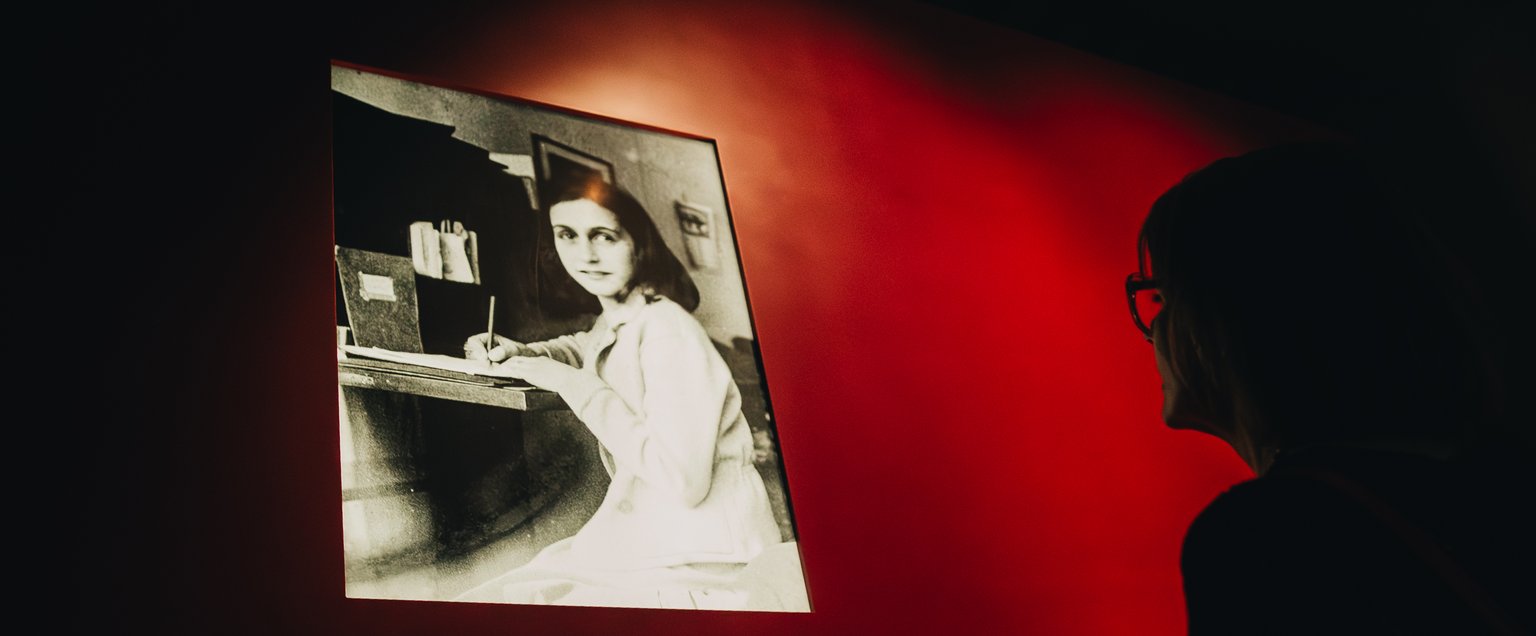(By Ronald Leopold, executive director of the Anne Frank House)
A typical day at the Anne Frank House. I look out from my office onto the square in front of the museum entrance. I see a man with a yarmulke and moments later a group of young women wearing the hijab. They’re patiently waiting until they can go inside to visit Anne Frank’s hiding place. They come to learn about the history that played out in this house, but also to better understand themselves and the world around them. Several thousand visitors every day, hopefully soon to include people from regions where war and violence now prevail.
After 7 October everything is different, but also the same.
Meanwhile, I see and hear an abundance of antisemitic outbursts. I see and hear the slogan ‘From the river to the sea…’: during demonstrations, projected onto buildings and even in the heart of our democracy, our parliament. Is the use of this slogan morally repugnant, especially in these days of widespread antisemitism? Mayor Halsema of Amsterdam was clear: yes it is. I agree with her, because the slogan actually means a denial of the state of Israel’s right to exist. Is the slogan against the law? Apparently not. The rule of law safeguards freedom of speech; a great good.
The images from Israel and Gaza – images of innocent civilian victims – cause emotions to run high, including my own. But does that make it all right to say or chant anything?
The key question is: how do we relate to this freedom of expression? If tomorrow all Dutch people were to exercise the right to freedom of expression without limit, with no regard for others, the day after tomorrow we’d be living in an unhabitable, hate-filled country. We’d all fall victim to that. Many people, with different backgrounds and different identities, are committed to reducing tensions and building bridges. Because even after these terrible times are over, we have to move on together, we want to move on together. The use of the slogan detracts from the work of all those bridge-builders, who bring a message of hope, not hate. They feel pain, they’re full of worry and fear, but they’re also determined to oppose group-centred hatred and polarisation, especially in these times. This calls for an effort from us all, for example by reflecting on the weight of the words we use.
Just like those thousands of visitors to the Anne Frank House, from all over the world and of all persuasions, we can draw inspiration from the words of the girl who wrote in 1944, aged just 15: 'we’re all searching for happiness; we’re all leading lives that are different and yet the same'.
Ronald Leopold
Executive Director, Anne Frank House
